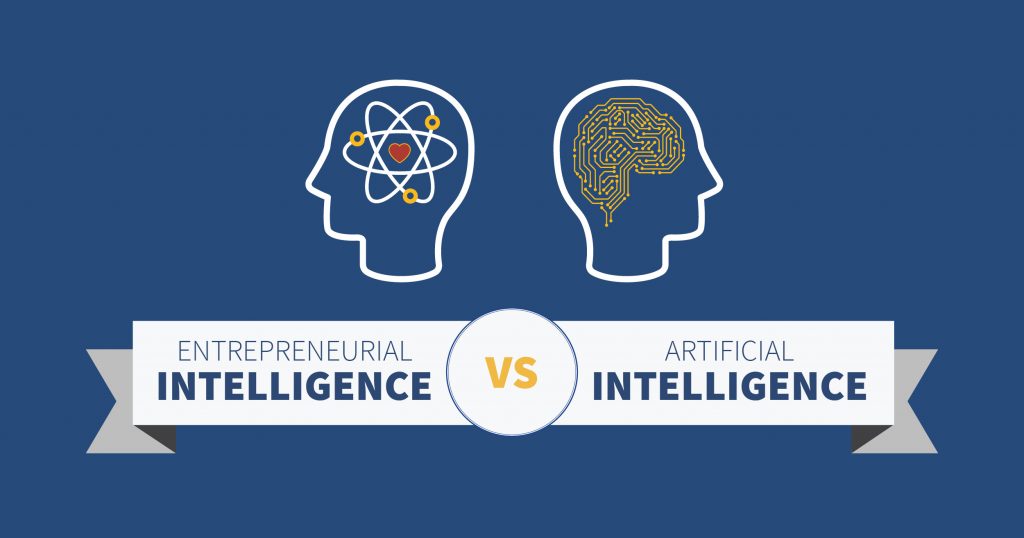80. Clay Routledge and John Bitzan: Entrepreneurship Brings Meaning and Purpose to Life
The entrepreneurial life is a life of meaning and purpose. We believe that strongly, and our belief is anchored in the ethic of entrepreneurship: to serve others, making their lives better, and thereby improve one’s own life, making an entrepreneurial profit, both economic and psychic.
In episode #80, we review some deep research support for this linkage between entrepreneurship, free-market capitalism, and meaning in life.
(Full episode transcript available here.)
Key Takeaways and Actionable Insights
An intersection between psychology and economics.
Clay Routledge is a social psychologist, with a focus on human motivation: what gives us the energy to pursue our goals and aspirations.
John Bitzan is an economist who has taught courses on international business and international economics. He fully understands the huge role played by economic freedom in elevating people out of poverty and making lives better. He now leads the Challey Institute (full name: Sheila and Robert Challey Institute for Global Innovation and Growth) that is focused on looking for ways to unleash the power of the private sector to create economic opportunity.
John and Clay collaborated on the research we discuss on E4E #80.
What is meaning and why is it important?
Meaning is defined as people’s perception of the coherence, significance and purpose of their lives. We are all trying to find a place in the world where we function, and we have a desire to be significant, to play a role in society, and to have a purposeful existence.
And people understand this about themselves. They have a good subjective sense of what it means to have a meaningful and purposeful life. They have a greater sense of meaning if they play an important part in the lives of others. Meaning embraces a contribution to someone else — to family, to community, to society — beyond just making a contribution to your own welfare.
The strong link between meaning and motivation.
People who see their lives as meaningful tend to live longer and healthier lives. Why? Because they are more motivated to live healthy lives. They make the choices that reduce the risk of mortality. They eat healthier, exercise more, avoid harmful behaviors like drug and alcohol abuse. When people have a purpose in life, they take better care of themselves.
Meaning is a motivational force. And that’s how it connects to economics.
Existential agency, capitalism, and entrepreneurship.
According to Clay and John, existential agency is the extent to which people believe they have the ability — it’s in their power — to pursue and maintain meaning in their lives. And people’s beliefs about meaning and existential agency influences a range of economic beliefs.
Clay and John researched the connection between people’s beliefs about existential agency and their views towards capitalism and entrepreneurship, both on the macro or institutional level regarding their role in solving important problems, and on the micro or individual level of their own entrepreneurial aspirations. They researched over 1200 Americans and asked questions including both their general views towards economic freedom and their motivations to become an entrepreneur.
The survey revealed that people who have more existential agency, i.e. a greater belief that they can obtain and maintain meaning in life, were more likely to have positive view towards capitalism, about entrepreneurship, and more likely to be motivated to start or run their own business.
It’s not self-interested, it’s pro-social.
Clay also emphasized how much meaning in life and existential agency are associated with pro-social beliefs, attitudes, and behaviors. For these people, motivation is not focused solely on their own wellbeing and their own life outcomes. Part of the motivation is to serve a community and serve society. Entrepreneurs are motivated to solve problems for others: entrepreneurship is pro-social. It can solve the major challenges of society, including macro problems like climate change or poverty.
The existential vulnerabilities of our current world.
The opposite of existential agency is the feeling of a lack of ability to play a meaningful role, or to take on a meaningful challenge or to see the opportunity to make a direct contribution via one’s own efforts.
Clay and John worry that young people are being educated to believe they have no control over their lives, and don’t have the ability to overcome obstacles that they face. They are told that problems are systemic, and discouraged from thinking about ways they could make a meaningful contribution, or make a difference. They are indoctrinated with a cultural world view that undermines existential agency. Symptoms include a decline of faith in capitalism and its institutions, and a sympathy for socialism.
A focus on meaning is especially important now, when people are told that they need to rely on the state to improve their situation, and are provided with negative work incentives via supplemental unemployment payments that make not working a better financial choice than working.
And Clay and John emphasized that the meaning-motivation axis applies to all social groups, including minorities. It’s important that we give all people — especially the young and minority groups — the message that they have the ability, through the agency of entrepreneurship and the institutions of free markets, to make a difference, contribute to something beyond themselves, and play an important role in society.
Free Downloads & Extras From The Episode
Challey Institute Research Briefs: Download Brief 1 – Download Brief 2
Challey Institute Research Report: Download Report
Clay Routledge on Why Meaning Matters For Freedom And Flourishing: Download Paper
“The Austrian Business Model” (video): https://e4epod.com/model
Start Your Own Entrepreneurial Journey
Ready to put Austrian Economics knowledge from the podcast to work for your business? Start your own entrepreneurial journey.

